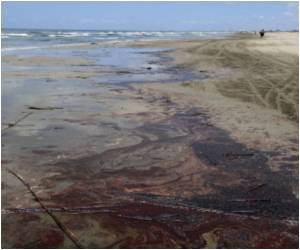Experts are concerned over the health risks for offshore workers following the burning of thousands of barrels of oil by BP to destroy the crude being accumulated in the Gulf of Mexico.

"They are getting ready to start burning both the crude and the gas. When the winds come from the south, it will blow the emissions toward shore and decrease air quality around the wellhead," she said.
The burnings will put BP workers at the wellhead site "at greater risk" of adverse health effects, she warned.
A key health concern is benzene a known cancer-causing agent found in oil and refined gasoline, she explained.
Louisiana on Monday reported 109 people, most of them workers, have reported spill-related illnesses since April 20, when an explosion tore through the Deepwater Horizon rig, killing 11 men.
BP has been under intense pressure from the public and the White House to increase it cleanup efforts.
Advertisement
"There have been trade-offs in every decision regarding this spill," she said.
Advertisement
"However, we are extremely concerned about the air quality exposure to workers in boats that are skimming oil on the coastal area and near shore," said Subra, an advisor to LEAN, a Louisiana environmental activist group.
BP's chief operating officer Douglas Suttles has acknowledged an increased health risk under plans to increase the number of oil spill containment vessels at the fractured wellhead site from one to four by mid-July.
"The risks of operating multiple facilities in close proximity must be carefully managed," Suttles wrote in a letter to Rear Admiral James Watson.
"Several hundred people are working in a confined space with live hydrocarbons on up to four vessels.
"This is significantly beyond both BP and industry practice.
"We will continue to aggressively drive schedule to minimize the pollution, but we must not allow this drive to compromise our number one priority, that being the health and safety of our people."
Subra said as oil disaster approaches its 60th day with millions of gallons still spewing into the Gulf, health concerns are shifting away from short-term symptoms to long-term effects.
"Clearly almost two months is a chronic exposure for people onshore and the workers doing the response activity," she said.
Other chemical concerns are semi-volatile chemicals that BP cleanup workers are being exposed to such as polynuclear aromatics, the chemist said.
Taslin Alfonzo, a spokesman for West Jefferson Medical Center at Marrero, Lousiana, said the facility has treated 71 people, including clean up workers, since May 31.
"Most were treated for heat exhaustion and some were not getting protective gear," Alfonzo told AFP.
Source-AFP











